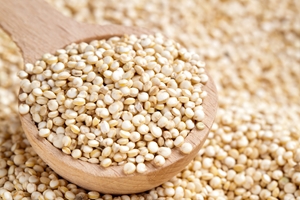
Stored product pests can be a pain to deal with. Most often, they go unnoticed until they emerge from the food they've been feeding on, the University of Minnesota noted. They aren't picky pests and will feed on any dry stored product. However, they commonly feed on grain, a staple on a farm. That means loss of product and more money spent by farmers, as these pests contaminate everything they touch. Consider these tips to keep stored product pests off your farm.
Though grain is cheap, it can add up quickly in mass quantities. Grain feeds a variety of animals, and if you have a big enough farm, then you have a lot of mouths to worry about. These pests are so ruthless they commit the same amount of damage crop pests do during growing season. They also can cause a domino effect of events. If the grain is contaminated, then the animals are fed less, which causes them to be a lower weight and market value, Colorado State University stated. The grain can also be valued less depending on how significant the infestation is, per the Federal Grain Inspection Services regulation, causing farmers to be forced to change their feed.
Consider these suggestions to keep stored product pests away from your farm seed.